|
By Manuel Players: 1 Platforms: Nintendo Switch Sagres is a sailing RPG that bears a strong resemblance to the Uncharted Waters series published and developed by Koei. It previously released on Steam, and it's now available for the Nintendo Switch as well. I actually reviewed said Steam release a few months ago, and that review can be found HERE. Naturally, I jumped at the chance to take a second look at the game simply because I had a lot of fun with it the first time around. Also, there are a few aspects of my earlier review I want to revisit. There's a lot to go over on this one, so let's get out there and start sailing already! Sagres puts you into the shoes of Fernando, a recent graduate of the Navigation School located in Sagres, Portugal. This isn't really relevant to the review, but it's worth mentioning now that the school in Sagres is considered to be mostly legend as far as history is concerned. His graduation scene is mostly an excuse to set up your starting stats, but you're promptly introduced to Fernando's best friend Lucia afterwards. It turns out that Lucia's father Antonio has been missing for some time, and the court of Portugal is acting rather suspiciously in regards to his fate. Fernando and Lucia attempt to find out more, but their investigation proves to be fruitless. Undaunted, a plan is suggested by their older friend Nicolau. He suggests that they build up their reputation as explorers by completing quests for the local guild. The fame they'll achieve from this is sure to gain the attention of the Portuguese crown, and maybe get them closer to finding out the truth. This plan ultimately succeeds, but the mystery about what became of Antonio runs very deep. It runs for much of the game, and it involves a lot of shady figures, more than a little political intrigue, and relates to plans to find a new sea route to India. Advancement through the game is all done by way of aforementioned quests, with some of them advancing the plot, and most of them simply for more fame and gold. I won't go too much further in explaining the story, as I don't want to dip into spoiler territory. Rest assured that it is full of great writing, witty humor, and enough action to keep players invested. That said, I have to admit that it isn't the deepest of experiences either. That's alright as far as I'm concerned though, as not ever game has to be a life-changing experience for those that play it. Gameplay is easily as important in a game like this, so let's turn our attention there next. Since I've already gone fairly in-depth when it comes to gameplay in my original review, I'm going to only give a brief summary here, and mention how things work differently on the Switch. Right off the bat I have to put a few things out there. The first is that the original version of Sagres I played was apparently a very early version. By the time I completed my review, a huge update was released that added new illustrations, story scenes, and gameplay balance. I never went back to try out the game a second time around, but there were a lot of changes that I noticed on this playthrough that I can only assume are a result of the updates the game has received in the months since I last played it. The second thing is the fact that much of my first review centered on my disappointment that Sagres wasn't the spiritual successor to the Uncharted Waters series that I truly hoped it would be. I don't often let biases like that sway my reviews, but I think I did so that time. I still rated it rather fairly, but I cringe at the comparisons I made in it. I'm not sure if it was the game's resemblance in graphics, or the fact that Sagres released in the wake of several new sailing RPGs, but I went in expecting it to be something it wasn't. Hopefully I'll do a lot less of that this time around, but I guess we shall see. At its heart, Sagres is a luck-based RPG that is very light on any mechanics that are heavily stat-based. You never see your characters on-screen in the proper sense, and your only representation of them comes in the form of your ship when you're travelling by sea, or your horse/camel when you're travelling by land. All actions take place through a series of menus, and most events, battles, and other situations are resolved through what is essentially a flip of the coin. Just about every random event is literally are resolved with that aforementioned coin flip, with the odds being slightly modified if you're skilled in whatever core stat is being checked. Combat, both on land and on sea, is settled by a series of rock paper scissors matches that you only sometimes know the outcome to. This actually reminds me a lot of the rock paper scissors boss matches in Alex Kidd, and they're just as random here. Even the changing of the wind is left up to chance, though it does seem slightly locked to the area you're currently in. I noticed this time around that the sheer amount of events that happened seems to have been increased greatly. I'm not sure if this was due to the rebalancing of the game itself, or if I was just extremely lucky in my first playthrough on the PC, but even the shortest of journeys had an event or two that sometimes left me struggling. I also noticed that the failure rate of events seems to have been increased, with battles themselves being noticeably harder too. I'm not going to complain about the added difficulty, since it was nice to be kept on my toes at all times, but I'm still not a fan of the randomness involved. Sea battles too often are left purely to chance, random events at sea sometimes don't seem to have anything resembling a "good" outcome, and the shifting of winds adds several in-game days to travelling. These are all things that can be dealt with of course, and they might not even be noticed by players who are experiencing the game for the first time. Though there are aspects of the core gameplay that I'm still not totally on board with, I must say that this Switch version is a big improvement on Sagres' formula overall. Though my earlier complaints might not be readily noticeable to new players, it's hard to miss how hollow the game can feel after a while. I want to preface what I'm going to say next by noting that I have a lot of positives to say about the gameplay loop that I'll get to later. I simply want to get the bad out of the way first. Back to what I was saying earlier, it's really hard to not notice all the many odd gameplay quirks the game has. The trade system is as pointless as ever, and is probably best avoided altogether. Earning money in-game seems completely broken, and I only managed to make the early game playable by save scumming my way to a fortune via lottery tickets. Then there's the in-game clock system, which seems to not only be totally broken, but also non-important. You'll find that you spend literal in-game weeks leaving and entering cities due to what I can only assume was a misguided attempt at realism. Why they chose to focus on that, but not get much else right historically is beyond me. For those who don’t understand what I mean, Sagres requires you to spend several in-game days "preparing" to enter/exit a city that's relative to your Logistics skill. You can increase this, or recruit someone with a higher Logistics stat, but Lucia will tack on 8 days each way for much of the early game. This adds in-game years to everything, and it's any wonder that her dad is even still alive by the time we do run into him. Actually, this time around I noticed that you can take as many years as you want messing around, and the game will still refer to key events happening very recently. This essentially makes the entire in-game clock/calendar system pointless. Maybe there is a limit if you take 30 in-game years to beat the game, but I spent two before completing any story quests, and the characters still referred to things happening "eight months ago". That may one of my biggest issues with the game, but there are more that I'll mention briefly. Ships are very limited, and they offer no real variety beyond being bigger and stronger than the one that came before. Completing guild quests is still a one-at-a-time affair that could have been greatly reduced if you were able to take on several contracts at once. And some of the contracts are simply "discovering" landmarks that already exist within well-populated cities. There's probably more to get out, but I think you get the point. I may have a laundry list of complaints about the game, but I'd be lying if I didn't admit that Sagres can be rather addicting too. There's an almost mobile game-like simplicity to the gameplay loop that kept me coming back even though I'd already seen everything the game has to offer the first time around. Also, something about playing this on the Switch just feels right. It's not a controller thing either, as I played the PC version using one as well. I can't describe it, but I kept thinking that it felt like a console game that was ported to the PC even though it was the other way around. Gameplay moves really fast, It's fun travelling through a virtual representation of the world in the mid-1400's, and there's a humor to everything that's hard to describe on paper. It may make no sense why we'd be "discovering" the Sphinx and the Pyramids of Giza, but having to answer the Sphinx's riddles is fun nonetheless. The game never seems to take itself too seriously, and I like that it mixes in the fantastical with the historical. There's even some decent gameplay variety in some of the guild quests, as some are completed by playing minigames. Some of these are in the style of classic games like Battleship and Sokoban, and it's a shame that most of them are very brief. Then there's the surprising amount of content in the game. There are tons of cities, dozens of hirable navigators, and lots of items and ship upgrades to purchase. There's even some twists and turns to the story that seem to be better executed out this time around. Some scenes seem to have more illustrations added to them, and I think there was even a rewrite or two going on. Though this is by no means the most in-depth sailing RPG out on the market right now, but there's a beauty to what it does do that makes what it's missing not really matter in the end. One aspect that I don't think anyone can really fault Sagres on would have to be its graphics. Sagres has a somewhat retro look that is very reminiscent of the Uncharted Waters series. While I promise that I won't take that comparison too far, it really is the first thing fans of the series are going to notice. It's a 2D world that looks like it would fit in on whatever your 32-bit console of choice is. It's colorful, it's smooth, and there are no hiccups at all during gameplay. Though I don't have many things to complain about when it comes to the game's visuals, it's hard to not notice that there isn't a lot that actually goes on during gameplay. You don't see other boats sailing around, and your ship/horse seem to be one of the few sprites around for long stretches of the game. Despite that one rather large negative, there are tons of positives. Character designs are great, the overworld is colorful and full of detail, the in-game icons are easy to grasp, and the parchment look that permeates the cutscenes is neat. Even the battle screens look fun, and I hated having to get into them. There's all sorts of visual references too, as most of the navigators you can hire seem to be references to other media. Unfortunately, the lack of graphical representation does run pretty deep. Many aspects of the game only exist via text, and that can be rather disappointing. Hope you didn't want to see the mermaids, sirens, or other sea anomalies that are plaguing your ship, the descriptions will have to do. Simply not being able to see your characters walking around in the many cities and towns is a bummer. Despite the fact that there are dozens upon dozens of locations to visit, they all use the same icons to represent what they have to offer. This is a very disappointing aspect of the game, but it's a limitation that I was willing to mostly overlook simply because the game charmed me that much beforehand. I was a little harsh on Sagres' music the first time around, but I still do think there's a lot of missed opportunities here when it comes to sound. The music is by no means bad, but there aren't many tracks that truly stand out. Some of them are stuck in my head even now thanks to how many times I heard them while playing the game, but not because of their strong compositions. Similar to the graphics, there doesn't seem to be a lot of variety when it comes to the soundtrack. Music seems to always come from the same pool, and the tracks don't change much when you're in a new part of the world. Besides a better soundtrack, I think the game could've really benefited from some sort of voice acting. I know that adding in fully voiced characters might be a bit out of the scope of a release this small, but even things like alternate typing sounds, or something representing different characters talking, would've gone a long way. Seeing as there are no character sprites, and they all only exist as a handful of images, there's no denying that these characters could've used anything that would've fleshed them out more than they are. None of these things are game-breaking of course, but they are things that could've helped elevate the experience. Even though I enjoyed Sagres a whole lot this time around, I'm still surprised that it isn't exactly a long game. Most players will probably beat its main questline in about 15-20 hours, and might be able to almost speedrun it if you know what you're doing. You can obviously spend a lot more time on the game than that, but the game does start to show its limited scope at about the halfway mark. You'll undoubtedly have to spend lots of time completing quests to gain the needed money and fame to progress, but the time spent on them seems to be falsely extended due to the fact that you can only take on one quest at a time. You can try to play it more as an open world experience, but there are lots of roadblocks that require you to go into the main storyline in order to unlock more parts of the game. Perhaps I'd have enjoyed it more if those roadblocks weren't there, but that might be a bit too specific a thing to complain about. That's my big takeaway from the game itself actually, there's a lot of issues I can bring up, but none of them ever feel so bad that they made me not want to play the game. Either way you look at it, this is a game that's going to snatch up a lot of your time, and its current price of $19.99 feels more than reasonable for the amount of content offered. I might think that it could've gotten away being a little cheaper, but at least this game has no Switch Tax added to it. (As in it's still the same price on Steam too.) I gave Sagres a rather loose recommendation when I reviewed it on PC, but this time around I have to say that picking it up on switch is pretty much a no-brainer. It's not only a great game, but there really isn't anything quite like it available. It's fun, it keeps you invested, and it's sure to scratch the itch of those looking for a sailing RPG experience on consoles. It's still no Sid Meier's Pirates, Uncharted Waters, or even Sailing Era, but it really doesn't need to be compared to those games. Sagres does its own thing, and it does it well. Now get to sailing, the world isn't going to discover itself! Check Out Sagres on Nintendo Switch: https://www.nintendo.com/us/store/products/sagres-switch/ Story: B- Gameplay: B Graphics: B+ Music/Sound: B Value: B Overall: B Pros: + A fun sailing RPG that feels more at home on the Switch than it does on PC. + Feels far more complete than the PC version did. (Though it may have caught up via updates.) + Skillfully mixes together historical elements with more fantastical ones to tell a story all its own. + The graphics may be limited, but there's a charm to them that's hard to deny. + Filled with minigames, random events, and all sorts of other bits of content only the most thorough of players will ever see. + Ignoring the main quest and playing just for fun is still something players can do. Cons: - Anachronisms, and weirdness with cultures, make this not as great a game as it could've been. - Small annoyances, like wasting weeks entering and leaving cities, are still here. - There's a sameness to the game that's hard to miss once you're about halfway through the game. - The simplistic combat, and the fact that you never get to see your characters walk around towns, make the game feel a bit too simplistic. - The real-world system still seems odd considering you can take years and years not completing the main story. A copy of this game was provided to us free-of-charge by the publisher for the purpose of this review. This did not affect our review in any way.
0 Comments
Leave a Reply. |
Search
Contributors◆ Angie
◆ Emily ◆ J.D. ◆ Janette ◆ JT ◆ Manuel ◆ Nestor ◆ Rose ◆ Sylvia ◆ Teepu ◆ Tiffany ◆ Winfield Archives
July 2025
|
© 2014-2025 A-to-J Connections. All Rights Reserved.



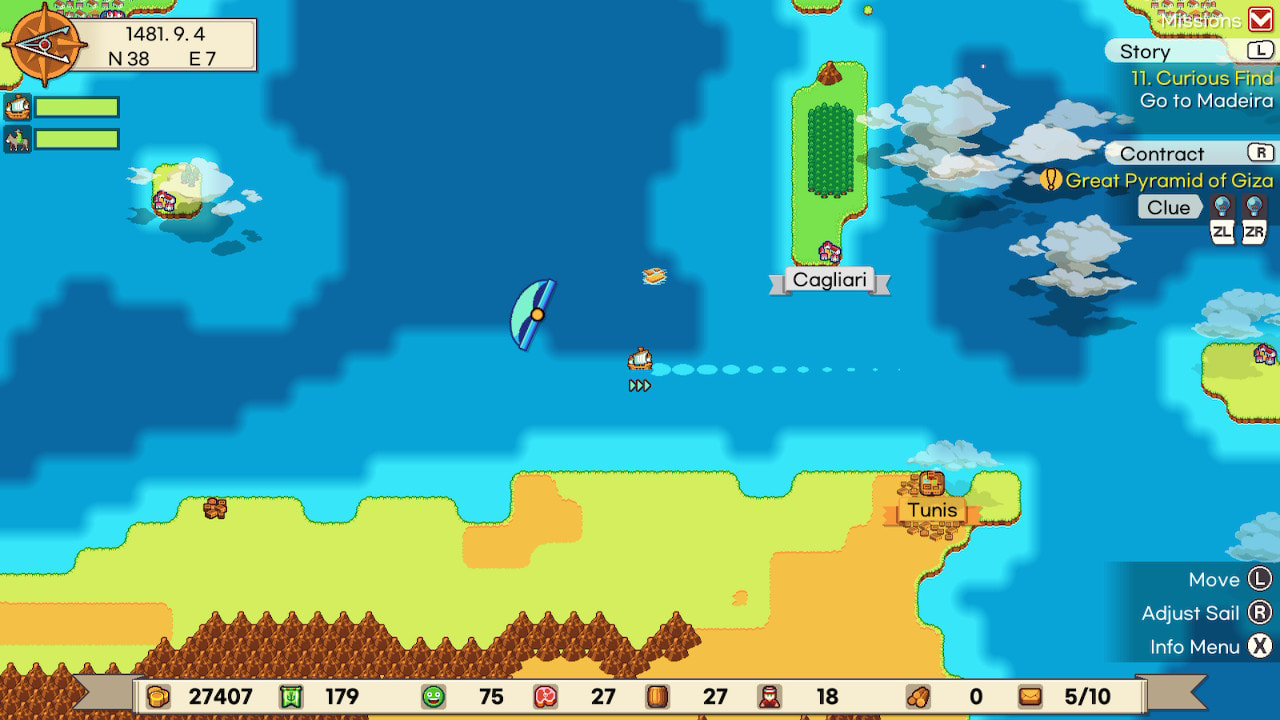
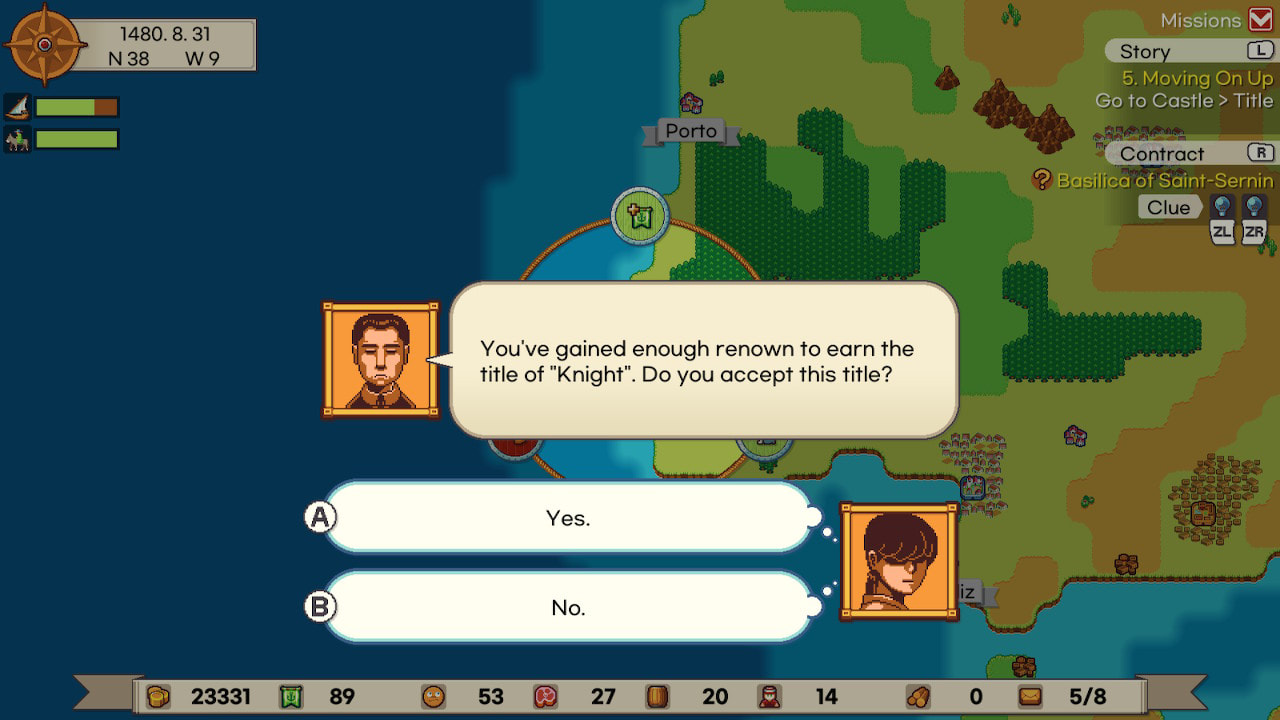
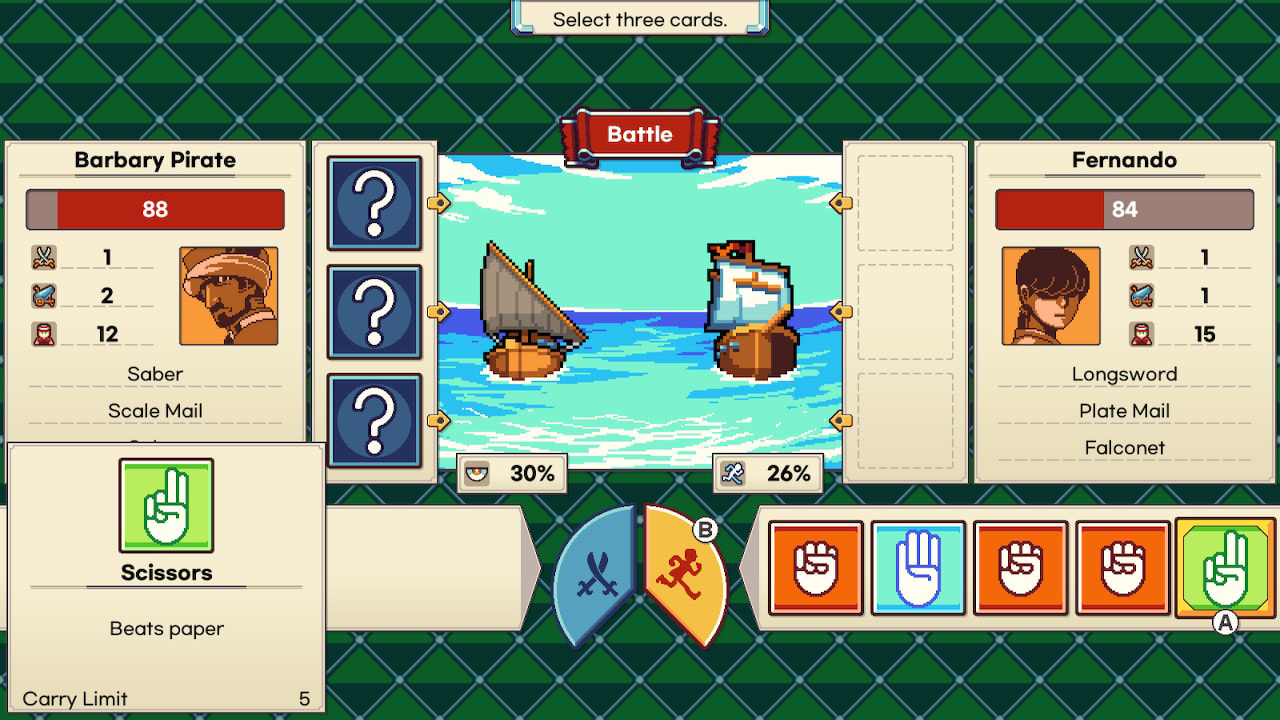
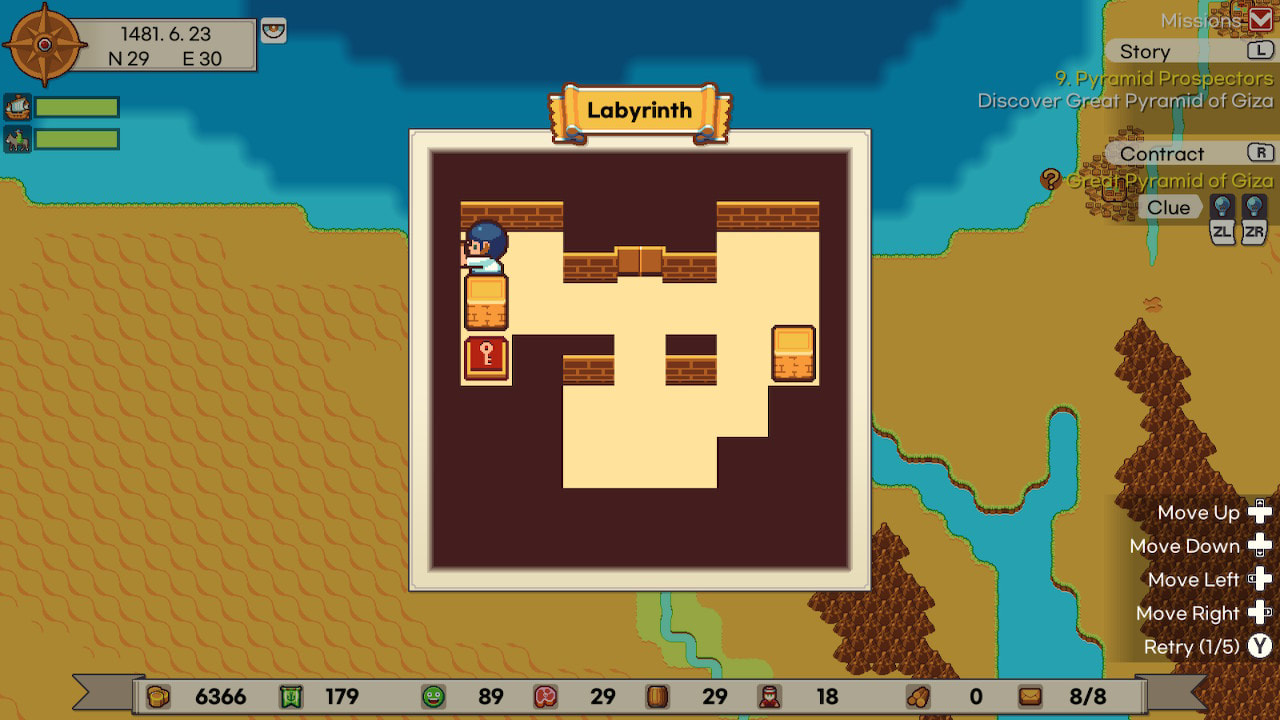
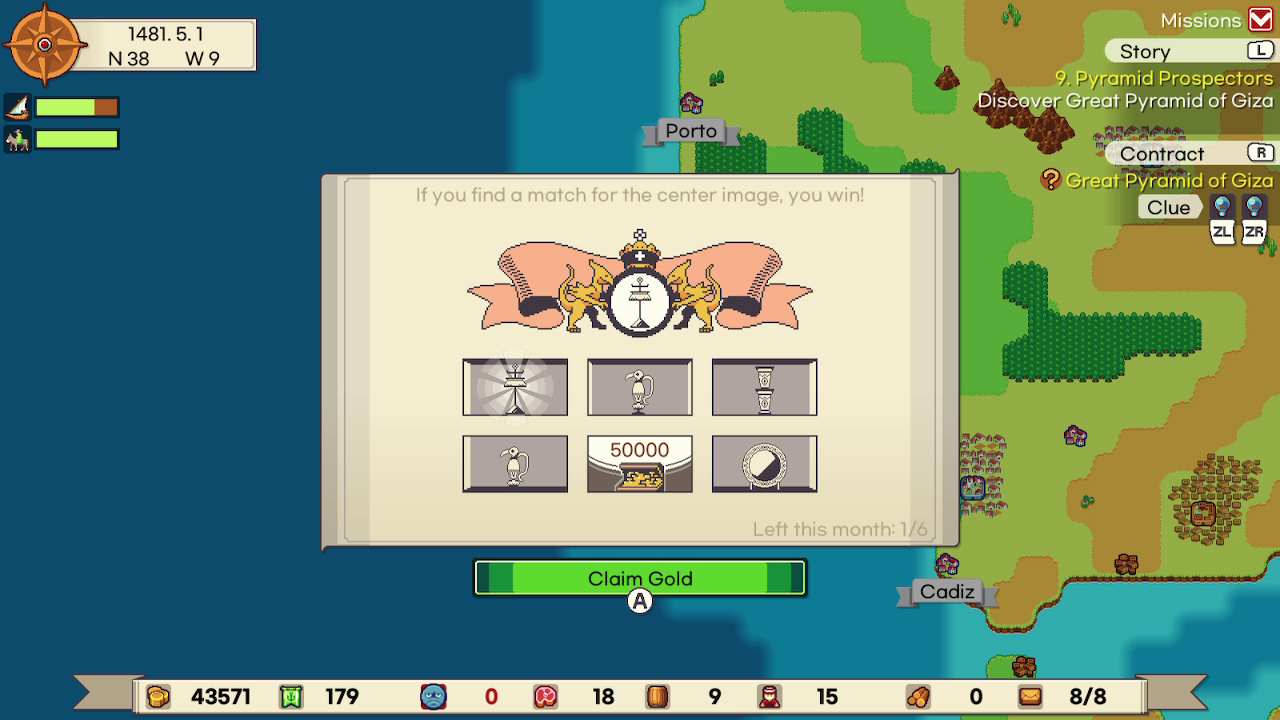
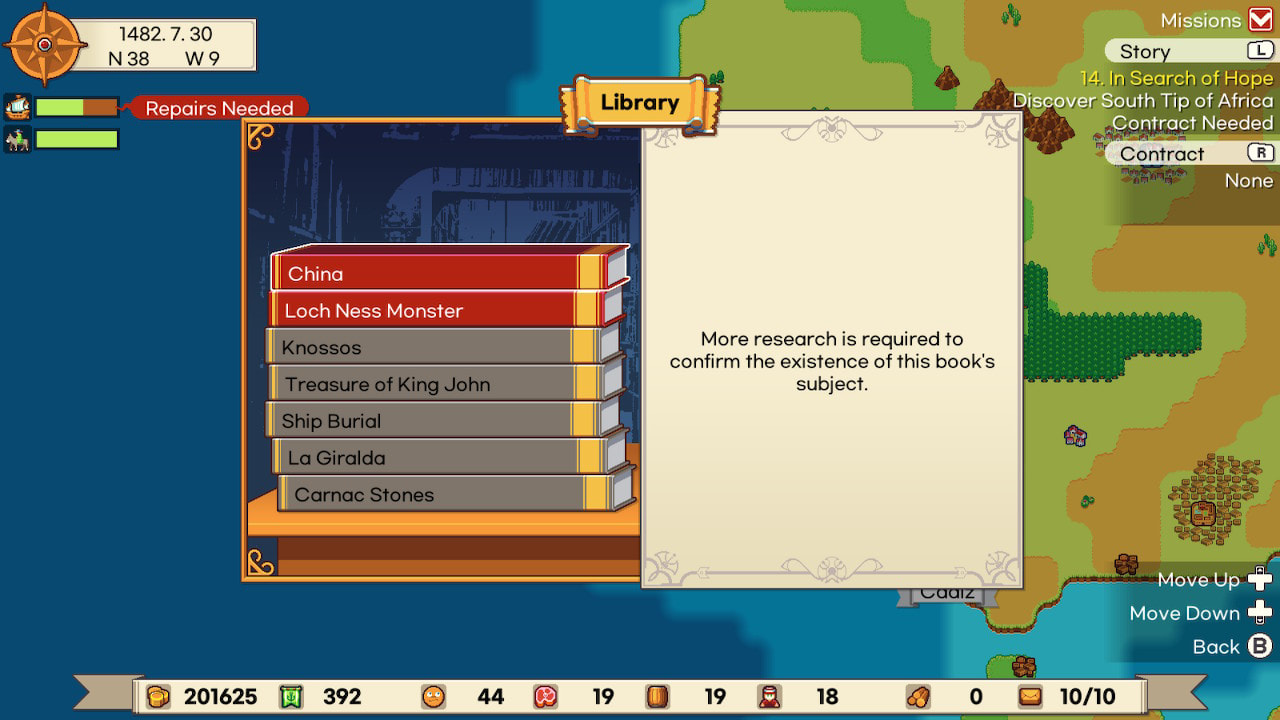
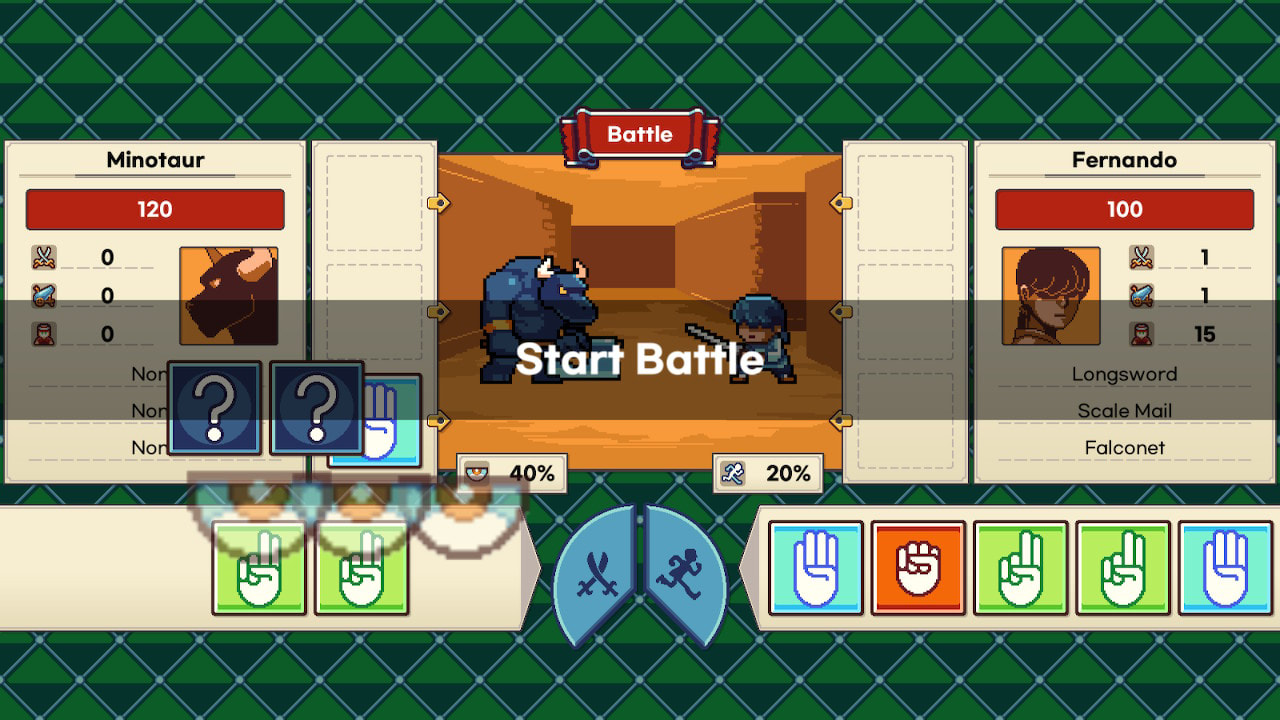


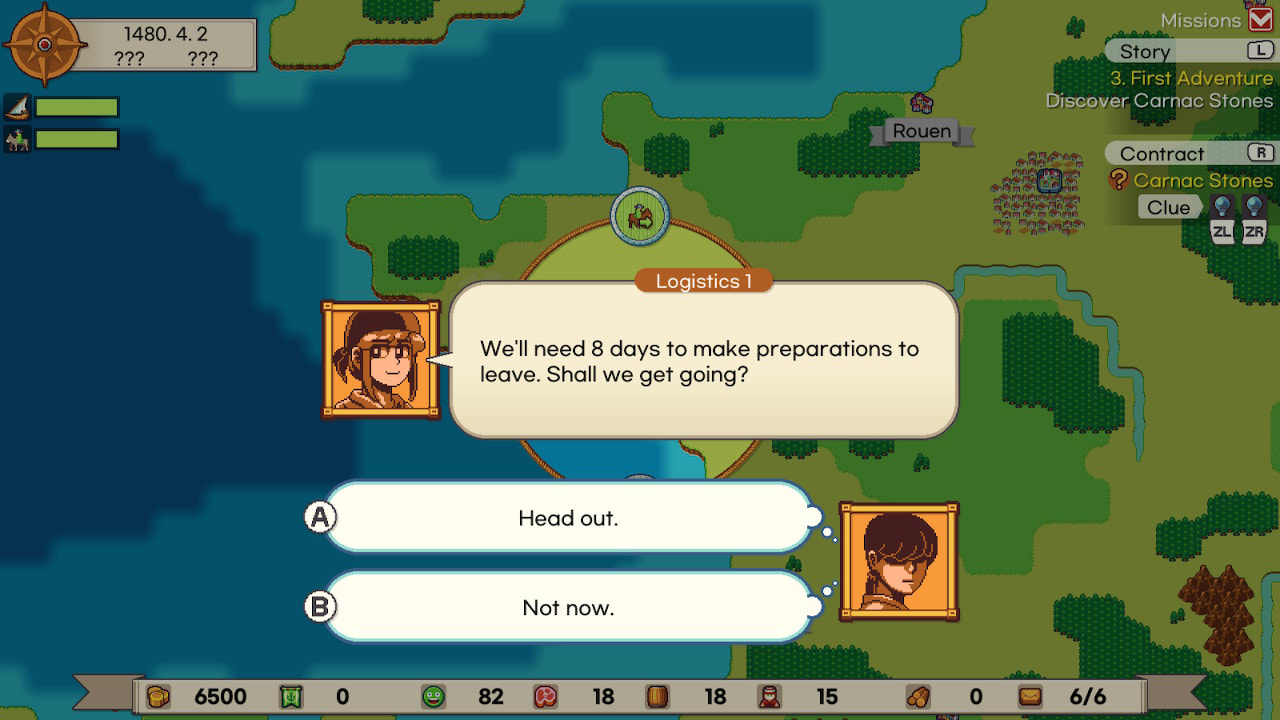

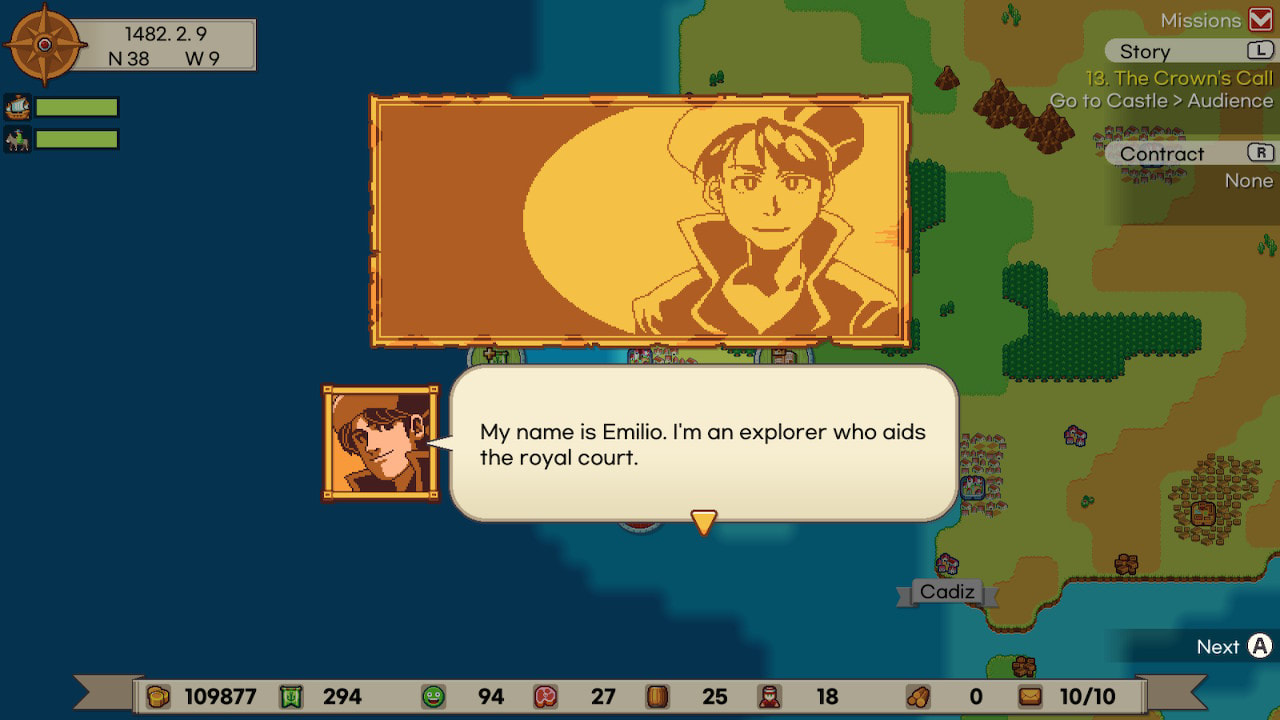
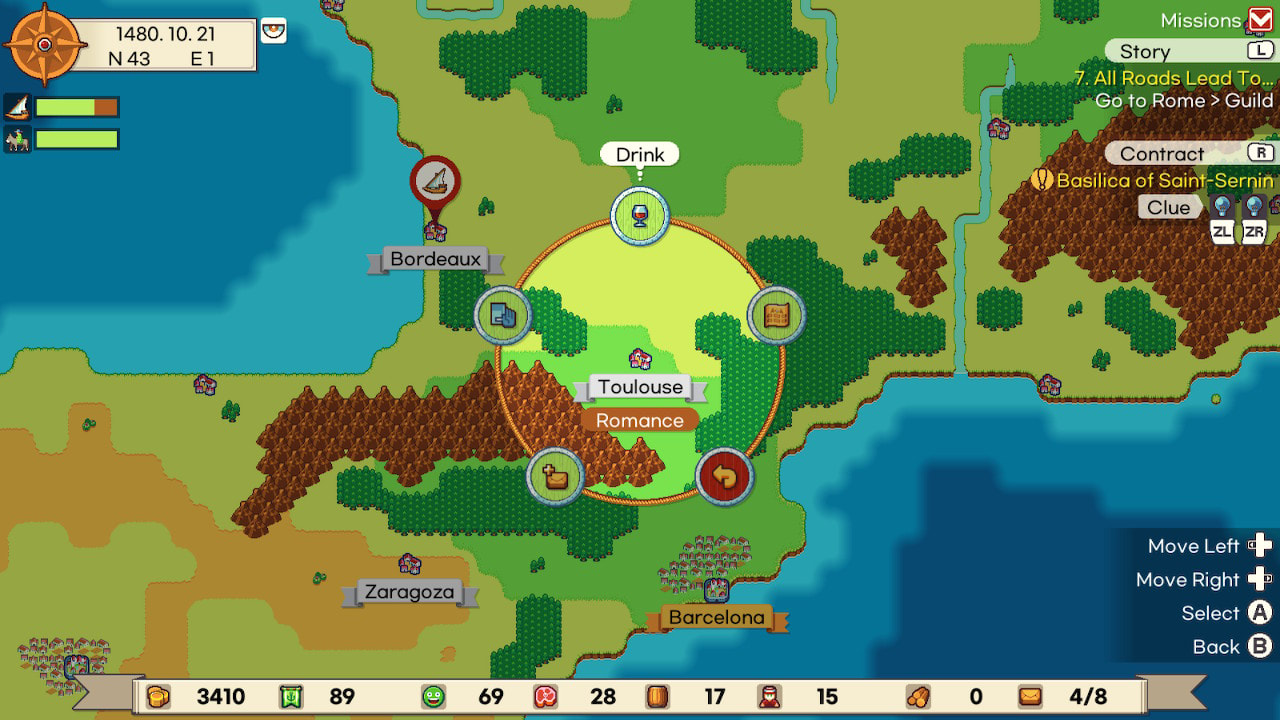

 RSS Feed
RSS Feed